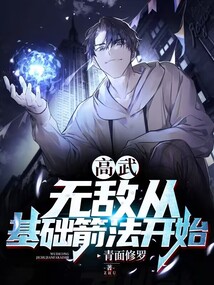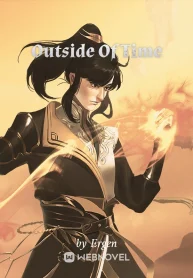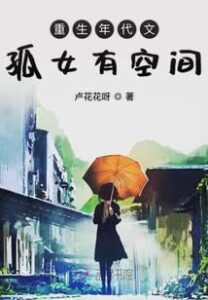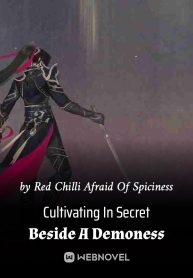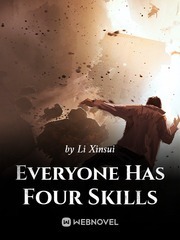Jin Tang was sitting upright behind his wide rosewood1 desk, which was covered by all kinds of embroidery patterns. In front of him stood the steward eunuchs from various offices of the Weaving and Sewing Bureau, each holding their official documents and waiting for his commands.
“We shall not weave these forty-three types of brocades2, such as the purple brocade with embroideries of jewellery and zigzag patterns3, and the purple brocade with embroideries of water droplets, Fangsheng and magpies4,” Jin Tang struck these names off the list in one go, “the people living near the southern coast have seen too many of them, so they’re not selling well in Guangzhou5.”
The eunuch in charge of weaving the brocades nodded continuously in agreement.
“Add additional twenty-nine types of damask6, like the damask embroidered with patterns of tides and ripples of water, and the one with white heron and water ripple embroideries. It’s getting hotter by day, so they will be popular.”
And so the eunuch in charge of weaving the damask noted his task. Presently, the secretary of the meeting stepped forward and said, “Grandfather7, we have received yet another urgent order from the palace. All the various colours of silk, gauze8, brocade with golden threads9, glittering silk10, brocade with python embroideries11, robes with the fighting bull12 embroideries on the chest and back, the brocades with Feiyu13, Qilin14, the robes with lion embroideries on the sleeve15, robes with embroideries at the knee level16, the brocades with embroideries of flying immortals17, and the brocades with embroideries of divine deers18… that were stored in the palace have all been rewarded away by his majesty. His majesty had dispatched an urgent order to us, Suzhou and Hangzhou19 to weave three to five thousand pi20 of various fabrics and to have them delivered to the capital as soon as possible.”
The fabrics have run out again…Jin Tang scratched his head, feeling overwhelmed. Just then, a eunuch serving as his valet surged through the door and knelt down in front of the desk, reporting, “Grandfather, Qi Wan has left. Dugong21 was there to see him off.”
“That old antique has finally left!” Jin Tang finally put a smile on his face, and began to joke with his confidants, “Let’s pray that he will never visit us on the return trip. We definitely can’t afford to entertain him again!”
“All the officials above the third-rank, as well as those in military positions and those in charge of defending the city, have seen him off at the harbour.” The eunuch added.
Jin Tang nodded in response. So the secretary of the meeting continued, “Grandfather, it is now the time to reserve the looms to fulfil our yearly quota of weaving the Dragon Robes22, the Divine Bird Robes23, the Velvet24 Brocade, and the formal belts25. The Elder Master26 has also sent us official letters to urge us.”
Jin Tang frowned. “Didn’t they tell us last time that the plain silk27 needs to be embroidered with golden threads for the fabrics on the chest?”
“It’s been changed again,” the eunuch in charge of weaving the silk was troubled by this tricky situation too, “last month’s royal decree ordered us to change the embroidery to the pattern of red cloud with tigers and leopards.”
The patterns and designs the royals preferred were constantly changing, yet there were only so many weavers and looms in Nanjing. With only twelve Shichen28 in a day, how could they possibly take care of everyone’s needs? Jin Tang was feeling anxious when the valet eunuch entered the room again, this time not kneeling in front of the desk, but approached and directly whispered in Jin Tang’s ear, “Manager Qu29 of the Ministry of War has left his office.”
Hearing that, Jin Tang immediately waved to the rest in waiting, “Go now. The meeting will resume tomorrow at noon.” He then instructed the valet eunuch, “quickly, send a sedan chair to fetch him.”
And so the soft sedan chair of the Weaving and Sewing Bureau went on the road. It ran into Qu Feng’s sedan chair on Tongjimen Avenue30. With respectful salutations, the eunuchs accompanying the soft sedan chair presented Qu Feng an invitation31 from Jin Tang. “Master, Gonggong Jin32 is inviting you to have a cup of tea as a gesture of gratitude.”
Qu Feng didn’t even get out of his sedan chair as he replied coldly and distantly. “There’s no need, I should be the one thanking him.”
“Our Gonggong insists, as there’s an intimate item that he wishes to return to you in person.”
What intimate item? It’s just a handkerchief! Qu Feng was slightly annoyed. The eunuch continued, “Our Gonggong has thought ahead for you. We’ve brought a sedan chair with us33, and we’ll escort you back after dark.”
Qu Feng lifted the window of his sedan chair and peered outside, and indeed he saw a sedan chair. After pondering on it for a while, he ordered his servants to halt at a secluded spot by the roadside. Jin Tang’s men were quick-witted too. Seeing Qu Feng’s servants in action, they immediately followed up, so that they could swiftly pick Qu Feng up as soon as he exited his own sedan chair. Once Qu Feng had settled comfortably in the new sedan chair, they lowered the curtain and departed.
After sitting in the sedan chair for a while, Qu Feng began to regret his earlier decision. He hesitantly enquired by tapping on the wall of the sedan chair, “Your Gonggong Jin…” The question was on his lips, yet he was unsure of the phrasing, so he chewed on it for quite some time, and finally asked, “does he often interact with government officials like this?”
“Well…” That was a tricky question for the eunuch, and just as Qu Feng thought he wouldn’t get an answer, the eunuch spoke up, “not exactly. Our Gonggong finds joy in reading and calligraphy, yet he never seeks close relationships with scholars easily.” He paused, which made Qu Feng itchy to learn more, and he continued, “He had lectured us previously, that those bearing official titles and fame wouldn’t bother to make acquaintances with us, unless there’s something they want from us, which will be either a dirty or an ugly deal.”
This is insightful. Qu Feng couldn’t help but agree with Jin Tang. At the moment, the eunuch outside the sedan chair added, “Unless…”
“Unless what?”
“Our Gonggong said, unless the person we wish to make acquaintance with is a close confidant.”
A close confidant? Qu Feng wasn’t sure how to weigh the meaning that word carried. He felt a fleeting sense of happiness, and a simultaneous feeling of shock and dread, as if he was burning himself during his attempt to light a fire. As he assessed his gains and losses from this decision, they arrived at the Weaving and Sewing Bureau. The soft sedan chair entered through a side gate34, and after walking north for about half a ke35, they finally reached Jin Tang’s office.
When he first got off the sedan chair, Qu Feng was struggling to hide his embarrassment and apprehension. All he wanted was to claim his handkerchief and leave. However, the moment he saw Jin Tang smiling and looking at him at the door, not even wearing a hairnet36 and only wearing casual clothing, he sensed a sudden relief and was at peace.
The tea was Baekho Silver Needle37. Jin Tang was behaving very relaxed, neither did he salute formally to Qu Feng, nor did he use any cliched small talk. He fetched the small handkerchief as soon as he approached Qu Feng, like he was an ordinary scholar with no official titles, who couldn’t bother less about court etiquette. “I’ve washed it and perfumed it with my benzoin incense.” There was no one around to serve them, so Jin Tang personally poured hot water from a silver teapot into Qu Feng’s cup. “The scent is somewhat different from what you’re using.”
“Oh.” Qu Feng only gave him a simple response, lifted the cup to his lips and finished the tea.
“Why would you…” Jin Tang was hesitant about asking. Yet, perhaps the atmosphere was genuinely pleasant, with the two of them sitting by the small window and sharing tea using Tuhao38 tea cups. As the boiling spring water flowed into the cups, he finally picked up the courage to ask, “why would you end up in the Ministry of War? The Ministry of War and the Ministry of Rites39 have always been at odds.”
Qu Feng smiled but didn’t answer.
Jin Tang felt somewhat embarrassed, as if he was being too gracious towards someone who was indifferent to him. His thin lips tightened, appearing a bit sorrowful and pitiful.
“Last time,” Qu Feng finally spoke, but only uttered the simplest reply, “thank you.”
This time, it was him pouring water for Jin Tang. “It doesn’t matter whether I retrieve my handkerchief or not. I came here to ask this question: why did the Weaving and Sewing Bureau cut down the dwarf pear trees?”
Many people had asked this question before, and Jin Tang always gave the same answer. But what should he say to Qu Feng? After some consideration, he eventually used the standard answer still. “Our Dugong has trouble sleeping well at night, so we have consulted someone experienced, who told us that the pear tree forest is taboo.”
Qu Feng raised his eyebrows and stared at him, slowly turning the cup of tea round and round in his hand, his burning gaze imposing.
Jin Tang didn’t dare to meet his eyes. Not sure if it was out of nervousness or something else, he licked his lips and admitted vaguely, “Ever since we cut down the trees, our Dugong indeed sleeps better.”
Silence. The kind of dead silence found only in the middle of night. All Jin Tang could hear was the silver teapot gurgling on the stove. A substantial period of time passed before Qu Feng finally replied, “Oh.”
That’s another “oh” from him. Qu Feng put down his cup and got up. Seeing that he was intending to leave, Jin Tang hastily said, “Stay a little longer.” He then quickly tried to cover up his attempt to spend more time with him, “It’s not yet dark outside. Can’t let anyone see you leaving from my place.”
Qu Feng considered for a moment and agreed, but since he had already stood up, it felt awkward to sit back down again. So he strolled away and approached Jin Tang’s desk, where he saw a small inkstone with flower carvings on the desk. It was hard to imagine that a eunuch with such power as Jin Tang would use such a crude item. He couldn’t help but lean in for a closer look.
Jin Tang stood up with him. As he saw Qu Feng studying the inkstone, Jin Tang felt embarrassed, “I bought it at Qiyue Zhai40 next to the Tits Mansion41 when I was a child. Been using it for years.”
He is a sentimental person, thought Qu Feng. However, what caught his interest were the other two words, “The Tits Mansion?”
“It’s for the consorts in the palace…” In Beijing, it was nothing but an informal name that everyone used, but now that Qu Feng enquired about it, Jin Tang couldn’t help but feel genuinely obscene, and his face turned glistening red as he struggled to speak, “it’s…” he tried to explain, his voice getting softer and softer, “where they select wet nurses for the consorts in the palace,”
“By the way.” It seemed like Qu Feng was trying to discreetly save Jin Tang from his embarrassment; he fished out a small, squarish box from his sleeves and gave it to Jin Tang, “Just bought and unopened. I didn’t bring anything else suitable, so consider this my thank-you gift to you.”
It was the finest Muslim product, Jin Tang recognised its high quality at a glance – it was a rouge for men. “How can I deserve…”
He was trying to refuse the gift. However, Qu Feng could tell that he really wanted it. What Jin Tang desired was not that box of rouge, but in fact a gift from a scholar. “Take it,” Qu Feng insisted, stuffing the rouge into Jin Tang’s hand, just as he had done with the handkerchief, his action betraying a hint of dominance.
Jin Tang was so pampered that he was getting anxious as he scrambled to come up with some words to properly thank Qu Feng. At that moment, they heard a sudden commotion outside. If the sound could reach them in the office, then it must have been quite chaotic outside. “What’s going on?” Jin Tang demanded angrily. The young eunuch on night duty replied outside the door, “Grandpa, the Ministry of War is arresting men for forced labour. They put up the notice this afternoon, stating that all families who had previously owned dwarf pear trees and had paid to the Weaving and Sewing Bureau are now recognised as part of the eunuch’s party. So they’re being forced and trafficked to the north of the city, to build a dam there for three months.”
“What?” Jin Tang was furious. He grabbed his Yesa42, put it on loosely around his shoulder and was ready to go out. Yet Qu Feng pulled him aside, “Don’t go! It’s chaos out there.”
“What are you guys up to?” Jin Tang glared at Qu Feng, who hesitated for quite a while before finally admitting, “You know about the Yong Society43, right? After last night’s meeting, they announced that anyone who doesn’t join their society will hence be known as ‘those who took the eunuch’s side’. There will be no room for survival for fence-sitters from this day onwards.”
“What does that have to do with the common folks?”
Right, what does that have to do with the common folks? Certainly Qu Feng understood that as well. “It is a form of intimidation. They have to use someone to set an example and warn the rest.”
Whoa! That was a difficult chapter to translate! I was dying from adding all the footnotes. I’m quite busy with my real-life commitments lately so do let me know if there’s anything wrong:)
You can also join my discord here!!
The original term here is Huanghuali, 黄花梨. A type of luxurious rosewood often used to make Chinese furniture.
The Chinese term for brocade is Jin, 锦. It was difficult to find the exact patterns described in the book because most of the fabrics from the past have been lost in history. These are some patterns that you can refer to for a better visualisation of what’s happening in the story.
The Chinese name of this brocade is Zi Bao Jiedi Jin, 紫宝阶地锦.
The Chinese name of this brocade is Zi Xiao Dizhu Fangsheng Luanque Jin, 紫小滴珠方胜鸾鹊锦. Fangsheng is a Traditional Chinese decoration pattern, meaning auspiciousness.
Guangzhou, 广州, a city in southern China.
The Chinese term for damask is Ling, 绫.
Grandfather is not literal here. It is a title used by junior eunuchs towards their close superiors.
The original term here is Shaluo, 纱罗. It is woven by a thin layer of silk. See picture here.
Brocade with golden threads is also known as Zhijin Jin, 织金锦. See picture here.
Glittering silk is also known as Shanse, 闪色.
This embroidery pattern is known as Manglong, 蟒龙, (literally a “python dragon”) in Chinese. In ancient China, a python refers to a Chinese dragon with four fingers on each of its claws.
A robe made of silk with bullfighting embroidery is mostly used as a personal, special gift from the emperor to his favourite subjects.
Feiyu can be directly translated to “flying fish”, although “flying fish” here refers to the Chinese dragons with four-fingered claws and a fish tail. Feiyufu, 飞鱼服, is a traditional Han clothing rewarded by the emperor to his loyal imperial guards, aka Jinyiwei, 锦衣卫. See a picture of Feiyufu here.
The Qilin, 麒麟, is a legendary hooved chimerical creature that appears in Chinese mythology, and is said to appear with the imminent arrival or passing of a sage or illustrious ruler.
Long sleeved robe is known as Tongxiu, 通袖, in Chinese. The specific patterns of embroidery are often used to display the wearer’s status.
The original term here is Xilan, 膝襕, which refers to the embroideries at the knee level on the official’s uniforms in Ming Dynasty. See a picture here.
The original term here is Feixian, 飞仙.
The original term here is Tianlu, 天鹿, Which literally means “the divine deer that lives in heaven”. See a picture here.
Nanjing, Suzhou and Hangzhou are cities in southern China. These cities are famous for producing extensively embroidered silk, even until now.
Pi Is a length unit in ancient China. One pi is roughly equal to 10 to 13 metres long.
Dugong, 督公, a reverent title for Liao Jixiang.
Dragon robes, also known as longpao, 龙袍, is a form of everyday clothing which had a Chinese dragon, called long (龙) as the main decoration; it was worn by the emperors of China.
Diyi, 翟衣 (literally “pheasant garment”), is the historical Chinese attire worn by the empresses of the Song dynasty and by the empresses and crown princesses (wife of crown prince) in the Ming Dynasty.
The original term here is Rongjin, 绒锦, it is made using very complicated weaving methods, using multiple layers of threads and silk, to form a fabric with extensive patterns that have three-dimensional effects.
The formal belt is known as Luandai, 鸾带 (literally a “divine bird belt”). Such a formal belt usually has embroidery patterns such as Feiyu, pythons, bamboo or plum blossoms. It is worn for attending royal audiences or other formal occasions.
The original word here is 老祖宗, Laozuzong, which is literally translated to “the elder ancestor”. This term is a reverent title towards older and powerful eunuchs. Specifically, the Elder Master here refers to the most respected old eunuch in the court. As eunuchs cannot father any biological children, it is common for young eunuchs to seek the protection of a powerful eunuch by becoming their “adopted son/grandson”. It pleases an eunuch to have as many “adopted offspring” as possible. Therefore, the elder eunuch is referred to as “the elder ancestor”. Since the “adopted sons/grandsons” still need to work for the elder eunuch and be filial to him, I took the liberty to translate 老祖宗 as “the Elder Master”.
The original term here is Su Zhu Si, 素纻丝.
Shichen, 时辰, a time unit in ancient China. One Shichen is roughly 2 hours.
Qu Feng’s position in the Ministry of War is Zhushi, 主事, which is similar to a manager.
Tongjimen Avenue, 通济门大街. Tongjimen means Tongji Gate. This avenue is located near the city gate named Tongji.
The original term here is Mingci, 名刺, which is a short letter with the sender’s name, title, as well as an invitation or a request to meet the recipient. Mingci can be sent days in advance or handed in right before a meeting.
Gonggong Jin, 金公公. Jin, 金, is the surname of Jin Tang, and Gonggong, 公公, is only used to address eunuchs.
By switching his own sedan chair to an unfamiliar one, Qu Feng can hide from the eyes in the street and avoid the accusation of “having secret relationships with eunuchs” or “betraying the officials’ party to join the eunuch’s party”.
A side gate is used by inferiors, or when the visitor wishes to keep the meeting discreet.
Ke, 刻, a time unit in ancient China. One ke is equal to 15 minutes.
The original term here is Wangjin, 网巾. Wangjin was very common in the Ming Dynasty, as this hair net keeps the men’s hair tidy. See an example here.
Baekho Silver Needle, or Baihao Yinzhen, 白毫银针. Amongst white teas, this is the most expensive variety and the most prized, as only top buds (leaf shoot) of the camellia sinensis plant are used to produce the tea.
Tuhao, 兔毫, means “hare’s hair”. The glaze surface bears yellow striations that resemble the fur of wild hares, and thus such works were referred to by the Song people as “hare’s fur tea cups.” See a picture here.
Qu Feng’s father is a second-rank official (so he’s likely the leader of a ministry too) in the Ministry of Rites. It would make sense if his father pulled some strings to put Qu Feng in the same ministry.
Qiyue Zhai, 齐月斋, the name of a store selling books and stationery.
The original term here is Naizi Fu. Fu means “mansion”, and Naizi, 奶子, is a slang word referring to breasts, so I translated it to tits.
Yesa, 曳撒, is a type of Hanfu (traditional Chinese clothing) in Ming dynasty. Often worn by men as uniforms at work.
Yong Society, or Yong She, 咏社, is a society established by officials. Note: officials refer to the ‘real men’ working in the ministry. These officials often hate eunuchs and despise them. This society is standing on the opposite end of the eunuch’s party.
RECENTLY UPDATES

